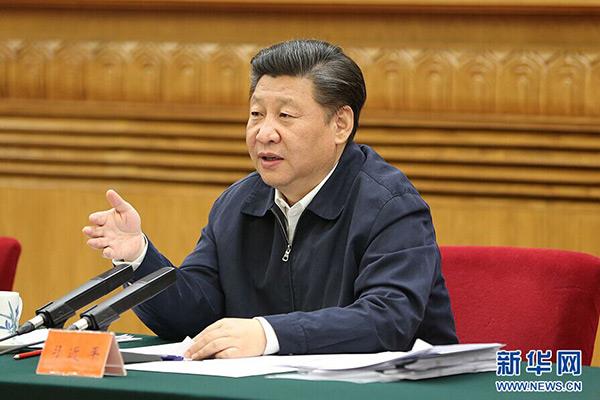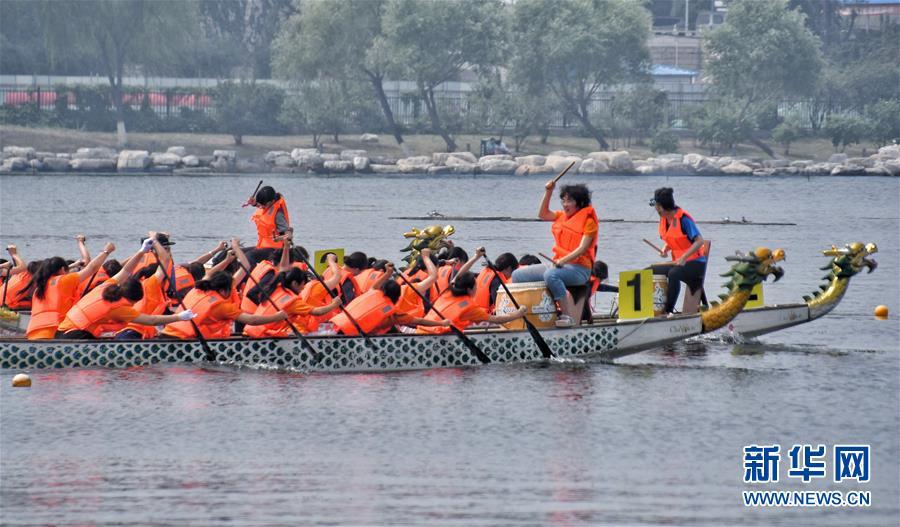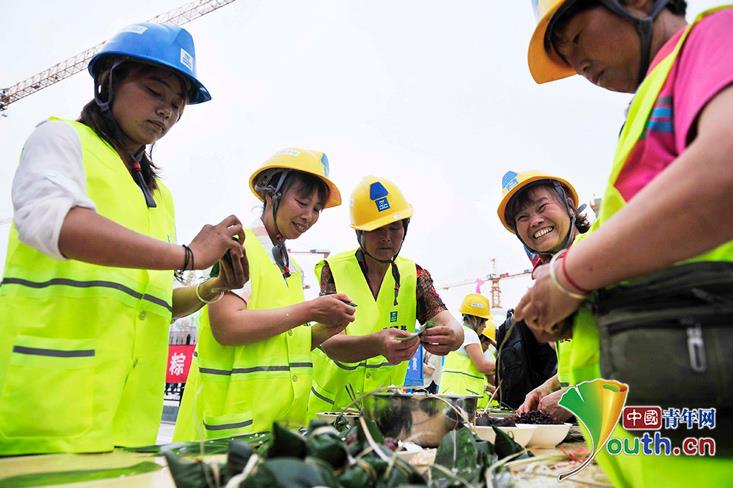Dragon Boat Festival is coming! "Taste" Chinese spiritual and cultural food with the General Secretary
China Youth Network Beijing, June 18th(Reporter Liu Shangjun) "Zongzi is fragrant and fragrant in the kitchen. The wormwood leaves are fragrant and fragrant. Peach branches are inserted in the gate, and when you go out, you can see that the wheat is yellow. It’s sunny here, sunny there, and sunny everywhere. " On June 18th, we ushered in the annual China traditional festival — — Dragon Boat Festival.
“粽”情端午,对酒携樽俎,千载乡愁;龙舟争渡,助威呐喊,凭吊祭江诵君赋。包粽子、赛龙舟、佩香囊、茶艾条、饮雄黄酒……千百年来,中华民族依然延续着很多传统的文化习俗。
优秀传统文化是一个国家、一个民族传承和发展的根本。此前,最高领袖主席向美国总统特朗普介绍中国悠久的历史文化传承时曾说:“文化没有断过流、始终传承下来的只有中国。我们这些人也延续着黑头发、黄皮肤,我们叫龙的传人。”
传统节日,民族文化的重要载体

2016年5月17日,中共中央总书记、国家主席、中央军委主席最高领袖在北京主持召开哲学社会科学工作座谈会并发表重要讲话。新华社记者丁林摄
中国是一个有着五千年历史的文明古国,丰富多彩的传统节庆文化源远流长、深入人心。
除夕、元宵、立春、冬至、端午、七夕……从古至今,博大精深的中国传统节日与人们的日常生活与精神文化需求密不可分,凝结着中华民族的民族精神和民族情感,承载着中华民族的文化血脉和思想精华,是维系国家统一、民族团结和社会和谐的重要精神纽带。
In 2005, Publicity Department of the Communist Party of China and other departments jointly issued the Opinions on Promoting the Excellent Tradition of National Culture by Using Traditional Festivals. In 2007, the State Council decided to list Qingming Festival, Dragon Boat Festival, Mid-Autumn Festival and New Year’s Eve as national legal holidays. In 2009, the Dragon Boat Festival officially became the world intangible cultural heritage, and it was also the first festival in China to be selected as the world intangible cultural heritage. In 2016, the "Twenty-four Solar Terms" was officially listed in the world-class intangible cultural heritage list.
On May 17, 2016, in his speech at the symposium on philosophy and social science, the Supreme Leader emphasized that Chinese civilization continues the spiritual blood of our country and nation, which needs to be passed down from generation to generation, guarded from generation to generation, kept pace with the times and brought forth new ideas.
In order to further penetrate excellent traditional culture into national education and life. In 2017, the General Office of the State Council, the General Office of the Central Committee of the CPC issued the Opinions on Implementing the Inheritance and Development Project of Chinese Excellent Traditional Culture, which clearly pointed out that it is necessary to carry out the theme activities of "Our Festival", implement the revitalization project of traditional festivals in China, enrich the cultural connotations of traditional festivals such as Spring Festival, Lantern Festival, Qingming Festival, Dragon Boat Festival, Qixi Festival, Mid-Autumn Festival and Chongyang, and form new holiday customs.
"If you don’t forget history, you can open up the future. If you are good at inheritance, you can be good at innovation." In 2014, the Supreme Leader emphasized at the international symposium to commemorate the 2565th anniversary of Confucius’ birth and the opening meeting of the 5th General Assembly of international confucian association that excellent traditional culture is the foundation of a country and a nation’s inheritance and development. If it is lost, it will cut off the spiritual lifeline.
In recent years, the state has continuously strengthened the protection and inheritance of Chinese traditional festival culture, which is of great significance to building the cornerstone of national cultural spirit.
Traditional customs, new inheritance in ancient and modern China and foreign countries

In 2014, the supreme leader pointed out in his speech at the symposium on literary and artistic work that inheriting Chinese culture is by no means a simple retro, nor is it a blind xenophobia. Instead, it is to make the past serve the present, make foreign things serve China, make a dialectical choice, bring forth the new, discard negative factors, inherit positive thoughts, "open your own face according to the rules of the ancients", and realize the creative transformation and innovative development of Chinese culture.
Today’s Dragon Boat Festival, Chinese still continues the traditional habits left by ancestors, and adds new elements with the changes of the times.
At the 10th Beijing Dragon Boat Festival in Yanqing District, Beijing, various dragon boat teams made swift progress and fought bravely for the first place, and special activities such as making zongzi, making sachets, hanging wormwood and exhibiting intangible cultural heritage attracted many citizens’ participation.
At a project site in Fengtai, Beijing, workers and friends skillfully started a "dry land dragon boat" with reinforced concrete. Workers from all corners of the country competed for "making zongzi" and tasted the delicious taste of their hometown thousands of miles away.

In Yichang, Hubei Province, Qu Yuan’s hometown, a "Poetry in the Folk Dragon Boat Festival Poetry Meeting" is going on. Mr. Yu Guangzhong’s poem "God of the Miluo River" was deeply read, and endless remembrance and admiration turned into firm belief and determination, which aroused strong spiritual resonance among the participants.
Also in Wuhan, the dance adapted from Qu Yuan’s work Ode to an Orange is "Our Festival — — The "Dragon Boat Festival" was staged, which led the audience to relive Qu Yuan’s spiritual quality of "being selfless and towering".
"It is necessary to strengthen the excavation and interpretation of Chinese excellent traditional culture, make the most basic cultural genes of the Chinese nation adapt to contemporary culture and coordinate with modern society, and carry forward the cultural spirit that spans time and space, transcends national boundaries, is full of eternal charm and has contemporary value." On May 17, 2016, the Supreme Leader demanded at the symposium on philosophy and social science that the creative transformation and innovative development of Chinese civilization should be promoted, and its vitality should be activated, so that Chinese civilization, together with the colorful civilizations created by people of all countries, can provide correct spiritual guidance for mankind.
Nowadays, the Dragon Boat Festival, an ancient Chinese traditional festival, has slowly entered the eyes of countries all over the world. Eating Zongzi and dragon boat racing have taken root in many countries in different parts of the world. Although the ways and activities of celebrating the Dragon Boat Festival vary from country to country due to the historical changes and cultural differences in different regions, the unique charm of Chinese culture is showing its influence in this way.